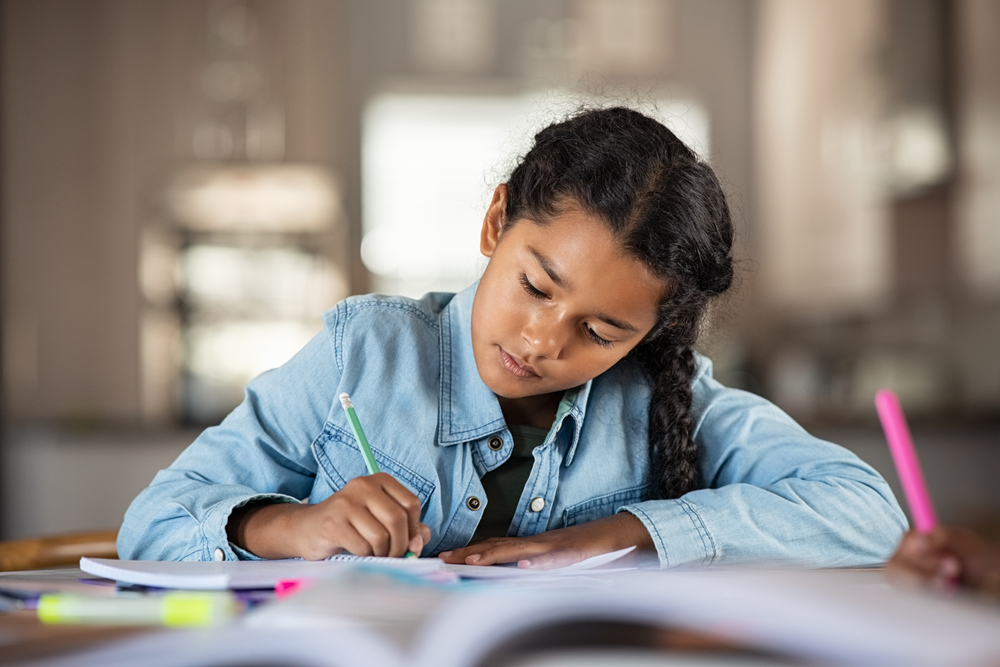 Hopefully, the holiday break allowed us all to catch a moment or two of relaxation and peace.
Hopefully, the holiday break allowed us all to catch a moment or two of relaxation and peace.
As a Licensed Mental Health Counselor who works with gifted, creative, and high-performing kids, I enjoyed listening to the rejuvenating stories of many students that I had the pleasure of seeing over the break. Some told me about their exciting trips to travel outside of the country, some were delighted that they were able to sleep into the late afternoon hours, and some were so happy to finally spend downtime with friends.
It was obvious that many of them were happier and more at peace with themselves now that they had time to decompress from school. As we got closer to the holiday break ending, I began to notice a shift in them. Happy, relaxed faces were turning into looks of reluctance and worry. My own high-performing child dreadfully began to describe the schoolwork that he was about to begin (while still on holiday break) just so he could get a head start on the immense amount of classwork that was about to be unleashed upon him when he returned to school.
Most of our kids place a high amount of pressure on themselves to do their best. Unfortunately, school stress can be so overwhelming to our kids that it can interfere with their mental health. This stress can take the form of somatic issues and be experienced as headaches, stomach aches, vomiting, and nausea. Or stress can lead to a lack of motivation or giving up. Many kids who fall behind do not see the point in continuing to try if it looks like they are engaging in an uphill battle that will never be won.
Stress can transform into self-criticism. Our kids wonder why they are struggling while everyone else seems to be keeping up. They wonder if they are not as competent as their peers who seem to be holding it together.
Tips for Combating School Stress
Be sure to provide a safe space for your kids to talk about how they are feeling. Here are three tips that may be helpful:
Try encouraging your kids to create a plan to organize and conquer their academic workload from where they are currently. Avoid lengthy lectures if you feel like they may have procrastinated. Kids may not be willing to accept help if they think that they are going to be scrutinized or judged. Instead, ask them what things may be helpful to keep them on track and at a healthy pace throughout the year.
Tip Two: Create a check-in system. Your check-in process could be a color, number, or code word system. For example, green may indicate that everything is fine, yellow may indicate that things are getting stressful, and red may indicate that your kiddo feels like he or she needs serious help. Check-in systems are great because they provide easy ways for kids to quickly communicate how they are feeling.
Tip Three: Recognize what they have accomplished. Acknowledgment of strengths and accomplishments can be serious motivators to kids! Avoid accusing them of being lazy or not working hard enough. Let them know that you see the efforts that they have put into school and that you are proud of them.
Because the truth is, our gifted, creative, and high-performing kids are usually doing the best that they can. If it seems like they aren’t trying their best or applying themselves, it’s most likely because they are already mentally exhausted. Take it day by day and ask them how you can best support their needs as they learn ways to navigate through this stressful time.
Remember, the biggest fear of most creative, gifted, and high-performing kids is that they will burden others if they fail.
Let your kids know that they will always be valuable whether they succeed or struggle.
 About the Author
About the Author
Erica Whitfield is a Licensed Mental Health Counselor and
Certified Therapeutic Art Life Coach who has a Masters in Counseling Psychology and over 10 years of experience working with children and adolescents. She is the Founder of Positive Development, LLC, a counseling practice for youth located in Jacksonville, Florida. Erica combines expressive therapies using art, music, physical movement and writing, with evidenced-based therapeutic modalities such as CBT, solution-focused and positive psychology approaches to help children and adolescents process past trauma, transition during difficult life adjustments, form healthier relationships, perform better in school and work through self-harming behaviors. She specializes in providing strengths-based counseling and has helped hundreds of youth unleash their capabilities, transform obstacles into opportunities and find healthy ways to express their energy and creativity.
















